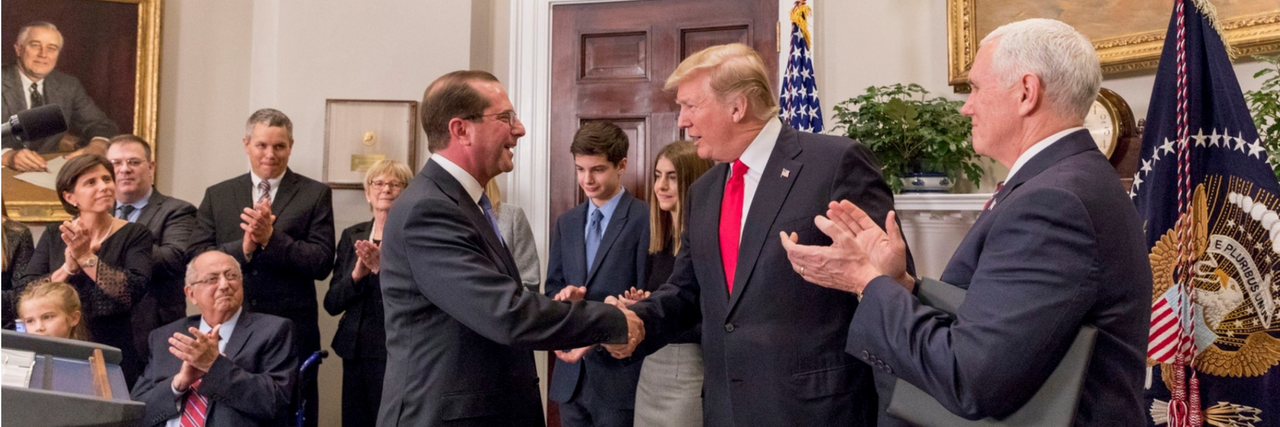Trump Administration Proposes Non-ACA Compliant, Short-Term Insurance Plans
On Tuesday, the Trump administration proposed expanding short-term health insurance plans from three months under the Obama administration to just under 12 months. Unlike the short-term plans under President Obama, these plans would not have to cover pre-existing conditions or any other protections afforded under the Affordable Care Act (ACA).
The plans are an attempt to provide coverage to people who cannot afford insurance in the ACA marketplace, are currently between jobs or another temporary situation that could mean no coverage.
“Americans need more choices in health insurance so they can find coverage that meets their needs,” said Alex Azar, secretary of the Department of Health and Human Services (HHS), in a statement. “The status quo is failing too many Americans who face skyrocketing costs and fewer and fewer choices.”
The plans may be appealing to people who do not qualify for subsidies under the ACA, causing them to pay higher premiums. In most states, premiums have increased between 2017 and 2018, though tax credits (a type of subsidy) have increased in almost every state, according to the Kaiser Family Foundation. Only a small percentage of people pay higher premiums without assistance. The majority of ACA enrollees (84 percent) receive a tax credit, though premiums may still be higher than those of short-term plans.
Short-term plans would not need to cover the essential benefits mandated by the ACA such as maternity care, care for those with pre-existing conditions, mental health treatment, prescription drugs or even preventative care.
According to the American Academy of Actuaries, these short-term plans have the potential to drive healthy consumers out of the marketplace, which would destabilize the market and cause premiums to rise for everyone on ACA-compliant plans.
Opponents of these plans cite the potential destabilization of the marketplace as one reason expanded short-term, non-comprehensive plans are dangerous. Another issue is that these plans could leave people with costly bills when they actually need medical help. Because these plans don’t offer comprehensive coverage and have higher deductibles and higher caps for out-of-pocket costs, people on these plans “take a risk that, if they do need medical care, they could be left with uncovered bills,” the Kaiser Family Foundation found.
“These proposed short-term plans would actually be long-term scams,” said Brad Woodhouse, campaign director for Protect Our Care, in a statement. “The Trump Administration wants to let insurance companies sell skimpy plans to unwitting Americans and then leave them holding the bill if they get sick or hurt.”
The proposal comes from the departments of Health and Human Services, Labor and Treasury in response to an executive order Trump issued in October. The order called for a change to short-term plans and other ways people can buy insurance. The proposal for short-term plans will have a 60-day public commenting period. Comments proposed during that time must be taken into account by HHS, the Federal Register states.
Got a tip for our news team? Send it to news@themighty.com.

